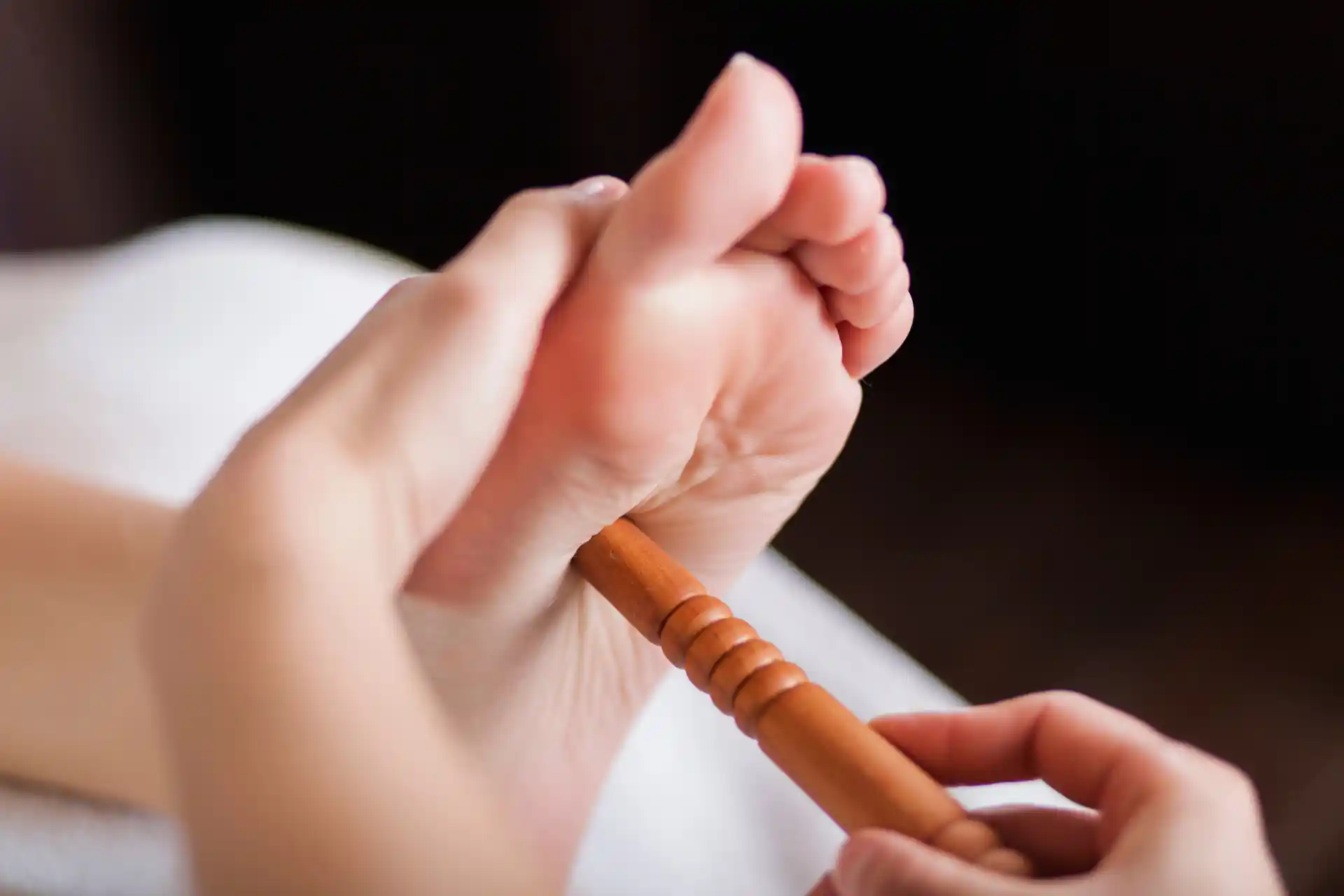Knowing how to support natural nerve repair can make a remarkable difference in daily comfort and mobility.
Damage to peripheral nerves—which connect the brain and spinal cord to the rest of the body—can cause tingling, numbness, or even sharp pain.
More than half of people with diabetes will develop some form of neuropathy, making it one of the most common causes of nerve injury.
The good news is that a number of noninvasive, natural approaches may reduce discomfort, improve function, and slow progression.
By combining smart nutrition, supplements, healthy habits, and mind-body practices, you can give your nerves a better chance to heal.
Recognize Key Causes
Understanding potential triggers is the first step toward natural nerve repair. Peripheral nerves are delicate, and multiple factors can disrupt their ability to communicate with muscles and organs.
Traumas And Physical Compression
Physical injuries, including sports collisions or workplace accidents, can compress or tear nerves and is a major contributor to peripheral neuropathy.
Even repetitive pressure on a nerve, such as prolonged leaning on your elbows, might lead to numbness or weakness.
Immediate medical care after a traumatic event often prevents further complications (Mayo Clinic).
Chronic Conditions
Certain chronic health concerns can accelerate nerve damage. Diabetes is perhaps the top example, causing nerves to swell when insulin resistance leads to elevated blood sugar levels.
Autoimmune diseases like rheumatoid arthritis may also degrade nerve sheaths and hinder nerve transmission.
Furthermore, excessive alcohol consumption can worsen existing nerve issues by contributing to vitamin deficiencies and poor circulation.
To learn more about other conditions can be triggered by nerve dysfunction, read up on pinched neck nerve, carpal tunnel syndrome, and sciatic nerve pain.
Nutritional Deficiencies
Low levels of B vitamins, vitamin D, magnesium, iron, and other minerals can weaken nerve structures over time. A deficiency in vitamin B12, for example, may foster peripheral neuropathy marked by numbness and loss of balance (Healthline).
Good news, these nutrients are easy to reintroduce into your daily routine, so be sure to pay attention to your diet if you suspect a shortfall.
Adopt A Nerve-Friendly Diet
Food is a powerful tool for nerve repair. Choosing the right nutrients can calm inflammation and support regeneration.
- Focus on plant-based foods: Vegetables, fruits, whole grains, nuts, and seeds provide antioxidants and fiber to protect nerve health.
- Include lean proteins and healthy fats: Fish, olive oil, avocado, and nuts help maintain nerve cell membranes and reduce inflammation.
- Support blood sugar balance: Consistent, balanced meals lower the risk of diabetic neuropathy.
- Stay hydrated: Proper fluid intake supports circulation and flushes out toxins.
Small dietary adjustments practiced consistently can make a noticeable difference in nerve resilience.
Use Supplements For Support
Supplements can fill nutritional gaps and work alongside a balanced diet to strengthen nerve function. Judicious use of these products may offer noticeable improvements in pain, mobility, and healing over the long term. Still, it’s wise to consult your healthcare provider before starting any new supplement, especially if you take prescribed medications or manage chronic conditions.
- B Vitamins (B1, B6, B12): Essential for nerve signaling and repair. A deficiency—especially in B12—can cause irreversible nerve damage, while too much B6 can worsen symptoms.
- Alpha-Lipoic Acid (ALA): An antioxidant shown to improve nerve conduction and reduce diabetic nerve pain.
- Acetyl-L-Carnitine: Supports cellular energy and has been linked to reduced burning and tingling sensations.
- Curcumin: The anti-inflammatory compound in turmeric; combining with black pepper improves absorption.
- N-Acetyl Cysteine (NAC): An antioxidant amino acid that may reduce inflammation and nerve pain at doses of 1,200–2,400 mg daily.
Embrace Positive Lifestyle Changes
Beyond diet and supplements, several everyday habits can go a long way in helping your nerves heal and function optimally.
Consistency is key. Little shifts in your daily routine, if practiced regularly, often add up to meaningful improvements in nerve health.
- Stay physically active: Walking, swimming, or gentle stretching improve blood flow, reduce stiffness, and support healthy glucose levels
- Quit smoking: Smoking narrows blood vessels, cutting off nutrients from reaching nerve endings
- Limit alcohol intake: High intake damages nerves and worsens nutrient deficiencies; moderation is key
- Practice foot care: Daily inspections help prevent unnoticed injuries, especially for those with diabetes
These changes reduce risk factors and build a healthier environment for nerve repair.
Practice Mind-Body Techniques
Nerve pain can take a toll on both your body and mental well-being. Holistic techniques that blend relaxation with conscious movement or focused breathing can be surprisingly effective.
The key is finding an approach you enjoy so you can stay consistent.
- Meditation and deep breathing: Reduces stress and lowers pain perception (Healthline). Even a few minutes daily can make a difference.
- Warm baths and gentle massage: Boost circulation, ease tension, and provide immediate comfort. Lavender or eucalyptus oils may add anti-inflammatory benefits.
- Yoga and stretching: Improve flexibility, posture, and circulation while lowering stress that can worsen symptoms.
Adding these practices creates a balanced approach that supports both physical and emotional well-being.
Seek RELIEF®
RELIEF® is a science-backed treatment that targets dysfunctional fascia, which may contribute to nerve irritation and peripheral neuropathy.
Using a gentle technique called hydrodissection, RELIEF® releases adhered fascia and soft tissue that can press on nerves—helping reduce tingling, burning, numbness, and pain associated peripheral neuropathy conditions.1-7
RELIEF® is a minimally invasive alternative to traditional treatments and does not require steroids, long-term medication, surgery, anesthesia, or post-procedure immobilization.
Light Recap
In summary, there are multiple paths to explore if you want to support your body’s natural ability to repair damaged nerves:
- Understand the risk factors and address underlying conditions like diabetes or autoimmune diseases.
- Improve your daily diet with nutrient-dense foods and manage your blood sugar levels.
- Use supplements such as B vitamins, alpha-lipoic acid, curcumin, acetyl-L-carnitine, and NAC under professional guidance.
- Embrace positive habits: exercise consistently, quit smoking, and limit alcohol to safeguard nerve function.
- Incorporate holistic techniques like meditation, warm baths, gentle massage, and mindful stretching.
These measures often fit well alongside any medical therapies you may be pursuing. Take it one step at a time, and celebrate each mild improvement.
By blending consistent self-care with proper guidance, you can foster healthy nerve function and enhance your overall quality of life.
If you’re in the Miami area and seeking relief from peripheral neuropathy, contact us today to schedule a consultation.






.svg)